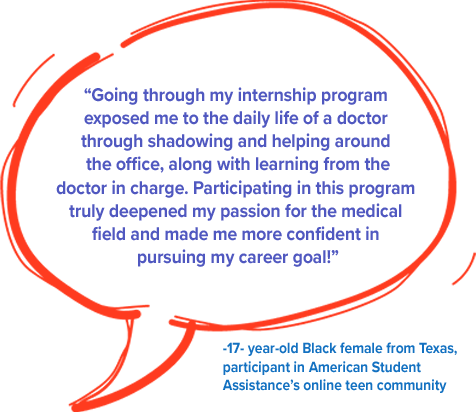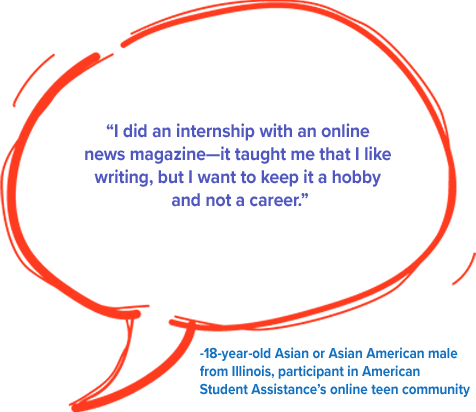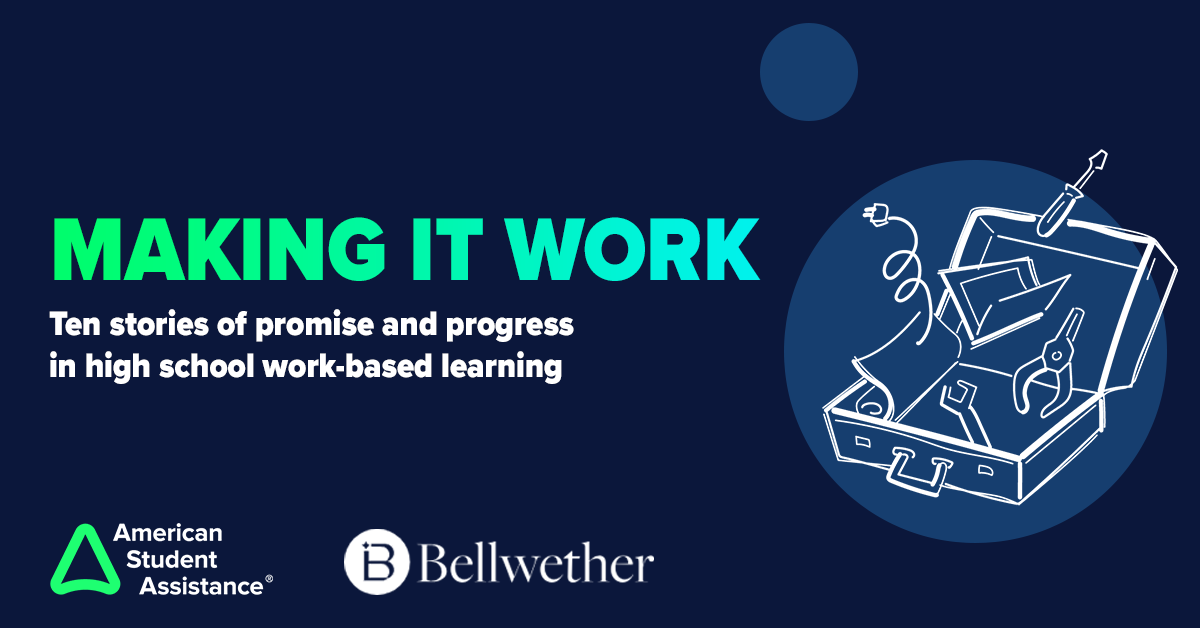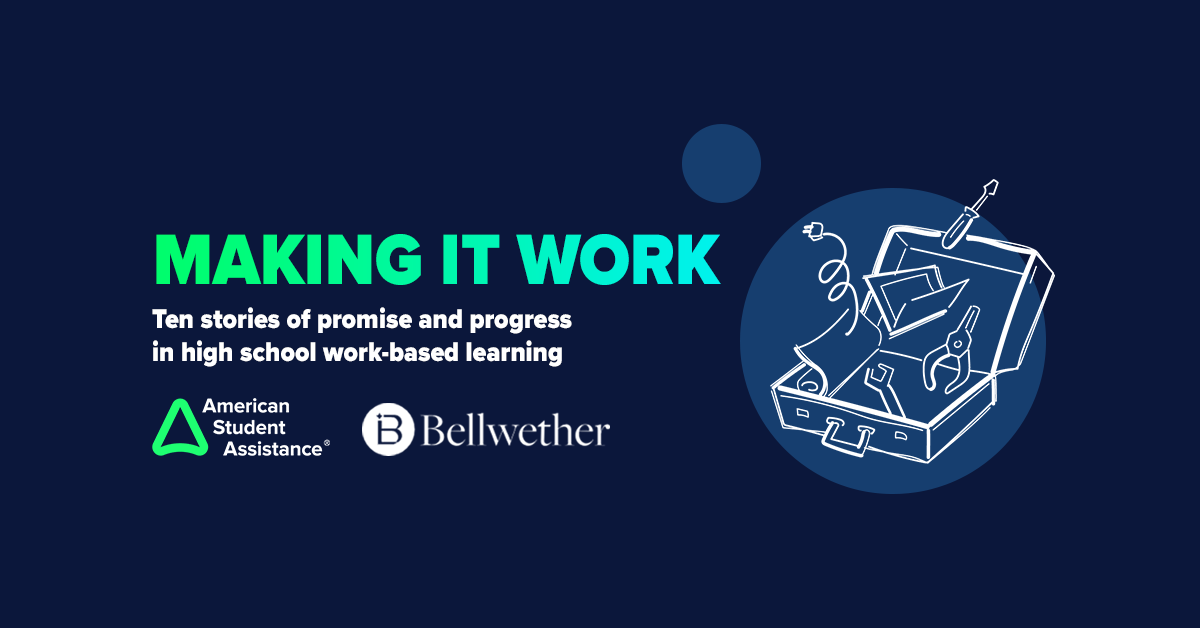Far too many young people are graduating from high school without having completed any sort of work-based learning (learning through work) experience — such as an internship, apprenticeship, or entrepreneurship education– necessary to help them explore, experiment with, and discover careers. Doing so equips all young people to make informed, confident decisions, and navigate their path to postsecondary education, career, and economic success.
Recognizing the instrumental role of these invaluable real-world experiences in ensuring long-term success for our nation’s youth, American Student Assistance® (ASA), a national nonprofit changing the way kids learn about careers and prepare for their futures, and Bellwether, a national nonprofit working to transform education to improve outcomes for systemically marginalized young people, have announced a new white paper, “Making It Work: Ten Stories of Promise and Progress in High School Work-Based Learning.” Each state’s efforts are unique to its educational, political, and economic conditions, and detailed accounts of these efforts are provided in state profiles. This report is a follow-up to the 2021 ASA and Bellwether analysis of high school work-based learning policies in all 50 states and D.C. and revisits planned work in 10 states to understand how it has progressed. While the 10 states profiled are taking very different approaches to strengthening their work-based learning programs and policies, several key themes emerged across their initiatives, illustrating common challenges and opportunities. For example, recognizing that the definition of work-based learning is necessary for a coherent state approach, the report details efforts in Louisiana, West Virginia, Connecticut, and Illinois, to clarify or expand definitions of work-based learning. Other areas of progress include data collection, such as West Virginia’s newly built system that collects work-based learning data.
The report also details where work remains and states are innovating new solutions, such as to overcome the significant challenges of transportation, time-limited funding, and expanding business partnerships in youth work-based learning.
STUDENT VOICES ON THE POWER OF WORK-BASED LEARNING






